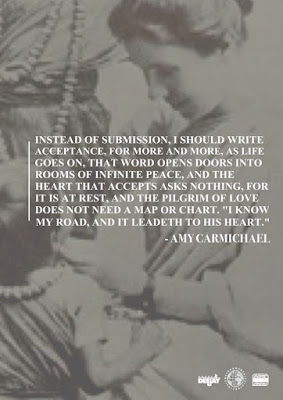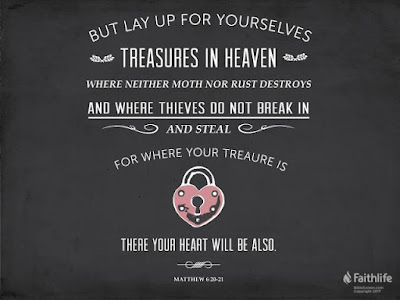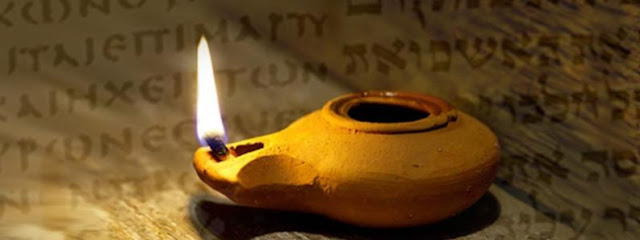Matthew 6:33
Finishing up this section, I found this bit of commentary from Scofield interesting. I've puzzled over the Kingdom of God before--how can it be now, I've wondered. How can you enter into it now? These types of messy matters slow me down in my reading, so I'm tempted to toss them aside and move to the next narrative. It's always a balance with these things. But, how can one justify blowing by such a big concept? Although the Kingdom of God and the Kingdom of Heaven have much in common, the terms are distinct and not interchangeable.
My summary of differences based on Scofield:
Kingdom of God--only by new birth, universal (includes angels, saints), timeless, inward, spiritual, doesn't "show" on the outside.
Kingdom of Heaven--in this current era may be true or false (visible Church?), the outworking of the time-bound fulfillment of the promise given to Abraham and David, the earthly Messianic movement of the coming of Christ and His ultimate establishment of the Kingdom of God. It originates and is defined in Daniel, is promised to David, and continued by Gabriel in Luke via Mary. It's organic (of the earth), will manifest on earth in a literal physical kingdom with Christ reigning. This kingdom will eventually merge into the Kingdom of God. The parable of the sower and of the virgins uses this term significantly.
*****************************
From Scofield's Commentary:
Kingdom of God
The kingdom of God is to be distinguished from the kingdom of heaven (See Scofield on Mat_3:2), in five respects:
(1) The kingdom of God is universal, including all moral intelligences willingly subject to the will of God, whether angels, the Church, or saints of past or future dispensations Luk_13:28; Luk_13:29; Heb_12:22; Heb_12:23 while the kingdom of heaven is Messianic, mediatorial, and Davidic, and has for its object the establishment of the kingdom of God in the earth (See Scofield on Mat_3:2) 1Co_15:24; 1Co_15:25.
(2) The kingdom of God is entered only by the new birth Joh_3:3; Joh_3:5-7 the kingdom of heaven, during this age, is the sphere of a profession which may be real or false. (See Scofield on Mat_13:3) Mat_25:1; Mat_25:11; Mat_25:12
 (3) Since the kingdom of heaven is the earthly sphere of the universal kingdom of God, the two have almost all things in common. For this reason many parables and other teachings are spoken of the kingdom of heaven in Matthew, and of the kingdom of God in Mark and Luke. It is the omissions which are significant. The parables of the wheat and tares, and of the net Mat_13:24-30; Mat_13:36-43; Mat_13:47-50 are not spoken of the kingdom of God. In that kingdom there are neither tares nor bad fish. But the parable of the leaven Mat_13:33 is spoken of the kingdom of God also, for, alas, even the true doctrines of the kingdom are leavened with the errors of which the Pharisees, Sadducees, and the Herodians were the representatives. (See Scofield on Mat_13:33).
(3) Since the kingdom of heaven is the earthly sphere of the universal kingdom of God, the two have almost all things in common. For this reason many parables and other teachings are spoken of the kingdom of heaven in Matthew, and of the kingdom of God in Mark and Luke. It is the omissions which are significant. The parables of the wheat and tares, and of the net Mat_13:24-30; Mat_13:36-43; Mat_13:47-50 are not spoken of the kingdom of God. In that kingdom there are neither tares nor bad fish. But the parable of the leaven Mat_13:33 is spoken of the kingdom of God also, for, alas, even the true doctrines of the kingdom are leavened with the errors of which the Pharisees, Sadducees, and the Herodians were the representatives. (See Scofield on Mat_13:33).(4) The kingdom of God "comes not with outward show" Luk_17:20 but is chiefly that which is inward and spiritual Rom_14:17 while the kingdom of heaven is organic, and is to be manifested in glory on the earth. (See "Kingdom (O.T.)," Zec_12:8, note; (N.T.),; Luk_1:31-33; 1Co_15:24, note; Mat_17:2, note.) (See Scofield on Zec_12:8), Luk_1:31-33 (See Scofield on 1Co_15:24; Mat_17:2).
(5) The kingdom of heaven merges into the kingdom of God when Christ, having put all enemies under his feet, "shall have delivered up the kingdom to God, even the Father" 1Co_15:24-28 (See Scofield on Mat_3:2).
*********************
A separate comment on Matthew 3:2, further clarifying Matthew's use of the The Kingdom of Heaven:
1) The phrase, kingdom of heaven (lit. of the heavens), is peculiar to Matthew and signifies the Messianic earth rule of Jesus Christ, the Son of David. It is called the kingdom of the heavens because it is the rule of the heavens over the earth:
Matthew 6:10 "Your kingdom come, your will be done, on earth as it is in heaven."
 The phrase is derived from Daniel, where it is defined; Dan_2:34-36; Dan_2:44; Dan_7:23-27 as the kingdom which the God of heaven will set up after the destruction by "the stone cut out without hands," of the Gentile world-system. It is the kingdom covenanted to David’s seed 2Sa_7:7-10 described in the prophets; (See Scofield on Zec_12:8) and confirmed to Jesus the Christ, the Son of Mary, through the angel Gabriel Luk_1:32; Luk_1:33.
The phrase is derived from Daniel, where it is defined; Dan_2:34-36; Dan_2:44; Dan_7:23-27 as the kingdom which the God of heaven will set up after the destruction by "the stone cut out without hands," of the Gentile world-system. It is the kingdom covenanted to David’s seed 2Sa_7:7-10 described in the prophets; (See Scofield on Zec_12:8) and confirmed to Jesus the Christ, the Son of Mary, through the angel Gabriel Luk_1:32; Luk_1:33.2) The kingdom of heaven has three aspects in Matthew:
(a) "at hand" from the beginning of the ministry of John the Baptist Mat_3:2 to the virtual rejection of the King, and the announcement of the new brotherhood Mat_12:46-50
(b) in seven "mysteries of the kingdom of heaven," to be fulfilled during the present age Mat_13:1-52 to which are to be added the parables of the kingdom of heaven which were spoken after those of Matthew 13, and which have to do with the sphere of Christian profession during this age;
(c) the prophetic aspect--the kingdom to be set up after the return of the King in glory. Mat_24:29 to Mat_25:46; Luk_19:12-19; Act_15:14-17 See "Kingdom (N.T.)"; Luk_1:33; 1Co_15:28 Cf. "Kingdom of God," (See Scofield on Mat_6:33).
saying (See Scofield on Act_17:30).


























